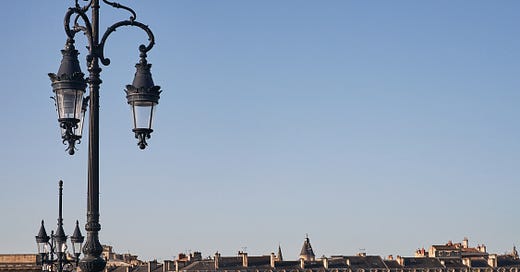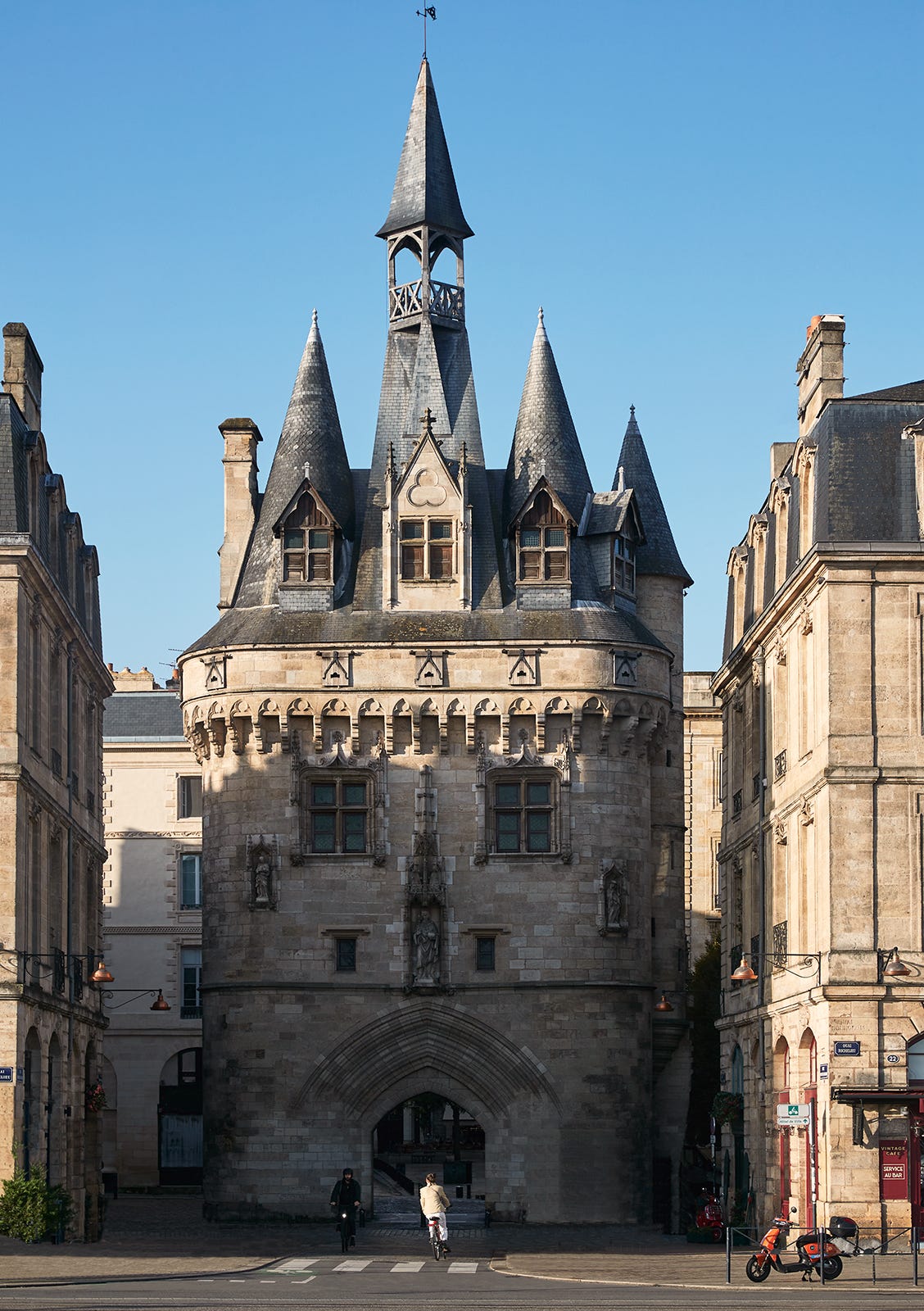The Pearl of Aquitaine
With a beautiful location on the banks of the river Garonne, the university city Bordeaux’s history is as old as its population is young.
In Things: A Story of the Sixties, Georges Perec outlines the life trajectory of a socially aspirational couple. The book begins with them living in Paris, fantasizing of all the things they want to own and everything they hope to experience. The book ends with them living in Bordeaux, leading an empty and meaningless existence with boring middle class-lives. The choice of Bordeaux was not chosen randomly; Perec wanted to juxtapose Paris – the capital of the very centralised France – with the periphery, where nothing happens, and people exist only to slowly fade away.
I remember my first trip to Bordeaux, taking the train from Paris with friends. Upon arrival, my friends thought the town seemed too depressing and after not even an hour, we left for our gite in the countryside. In the following years, I’ve often thought about this, and wondered why we were so rash in deciding the town was not worth a longer visit. For this reason, I was very excited to return and to get to know it better.
Bordeaux of the present is not the same as Bordeaux of the past. Just 20 years ago, it was a “melancholy, unwelcoming place”, but the arrival of Alan Juppé as mayor in 1995 transformed the city’s fortunes. It had been more or less had been comatose, earning it the nickname la belle endormie, but the indefatigable politician has given the city the kiss of life. Listed as a UNESCO World Heritage site in 2007, it is now the most desirable place to live in France and was voted “European Best Destination 2015’.
One of the first things I noticed was that Bordeaux is a young town. Being middle aged, I suddenly felt very old, being at least a decade (if not two) older than almost every single person I passed on the street. Bordeaux is a very popular university town, meaning its city centre is dominated by students. As in most towns like this, many people who live here are merely staying a semester or two, at the most a few years, before moving on to (hopefully) their first job and the beginning of their new life as adults. Often, university towns – Oxford and Cambridge in England, Lund in Sweden, Ghent in Belgium – are ancient, the facades of the buildings the same for hundreds or even thousands of years, while the people inhabiting them are forever young, rarely staying around after the age of 25. The contrast between century-old buildings and the masses of youthful and excited teenagers is what gives these towns their special kind of energy.
But it’s not because of the students themselves that Bordeaux now is one of my favourite cities in France; it’s the effect of being a place where curious minds gather and explore new alternative futures. According to quantum theory, there is no past and no future, only an infinite number of present moments. The future is happening now, as is the past. In order to change the future, you need to change what you are doing in this very moment. Every shift in thoughts and emotions signals what kind of future you want to have, as this is also playing out right now. Along the Garonne, there are several spaces sealed off, where the city is growing plants and attempting to drain the soil from generations of toxins and poisons. From large industries to patches of green is a telling sign of the current mentality of Bordeaux, where the future seems to be local, small-scale, and organic, with many nice wine bars specialising in low-intervention wine.






